Top 10 Books Read of 2015
"Christian audiences... are going to have to learn to appreciate realism in... art or they will bind it in moralistic straitjackets which prevent its contact with the actual world..."-Richard Lovelace
1. S. by Doug Dorst and J.J. Abrams
2. The Innovators by Walter Isaacson
3. The Meaning of Marriage by Tim Keller
4. Benjamin Franklin by Walter Isaacson
5. A Date with Destiny by John Martin Fey with Don Leahy
6. Cash by Johnny Cash
7. Sherlock Holmes: Vol. II by Sir Arthur Conan Doyle
8. Dynamics of Spiritual Life by Richard Lovelace
9. An Idiot Abroad by Karl Pilkington
10. The Tipping Point by Malcolm Gladwell
●●●
"Christian audiences, producers, and financial backers are going to have to learn to appreciate realism in Christian art or they will bind it in moralistic straitjackets which prevent its contact with the actual world, with non-Christian audiences, and with young people of every sort, who will soon desert a gelded art to seek poetry and music which is free and real... Evangelicals generally do not understand that what determines the edifying or corrosive power of a work of art is not the materials it uses and the actions it describes, but rather its moral outlook toward those materials and actions.”
- Richard Lovelace, from ‘Dynamics of Spiritual Life,’ pgs.346/347
My favorite movies are ones with the word fuck in them.
In college I had one of those obnoxiously unfruitful arguments with some church people about swearing. We were getting nowhere when my debate partner delivered the knock-out blow:
"I don't want to watch a mobster saying, 'freaking’.”
You may not want to watch a mafia movie. You may be better off by avoiding them. But a sanitized version depicting a mob boss you would feel comfortable introducing to your grandparents is not only inaccurate; it distorts reality into something that's tame. Watered-down.
False.
You should watch Scarface and think the man is off the rails.
You should watch The Godfather and think that organized crime is appalling.
You should tell the truth.
In reading through my 2015 journals, I could feel myself inching in this direction. The transition wasn't complete, but I made an abrupt shift from composing heart-felt, polished prayers to just writing down stuff I wanted to write down.
But there wasn't any lament. This was an era that didn't need any.
I had gotten engaged.
There were sketches of wedding logos, lists of honeymoon destinations, mind maps for groomsmen presents, and even the rarest of the rare— something written in Paige's handwriting after I gave her permission to write down ideas for suggested activities for wedding guests.
This was an exciting time. And my journals reflected that.
Which I think gave me permission down the line to be honest when the times weren't so blissful.
Telling the truth is a habit that needs practice.
●●●
S. by Doug Dorst and J.J. Abrams
But not really by J.J. Abrams.
“S., conceived by filmmaker J.J. Abrams and written by award-winning novelist Doug Dorst, is the chronicle of two readers finding each other in the margins of a book and enmeshing themselves in a deadly struggle between forces they don't understand. It is also Abrams and Dorst's love letter to the written word."
-S., back cover
I've never read a book as innovative and clever as S. There's no way to get the full experience on audio book. An e-book won’t work. You really can’t check it out from the library. And I would be scared to loan it out to anyone because components of the book may get lost. The only way to really read S. is to buy a copy and immerse yourself in it. You need to hold it in your hands.
And it is worth it.
There are about four levels of storytelling. There’s the story of a classic novel. The story of that novel's translator. The story between two individuals attempting to decipher a code through handwritten notes in the margins. There is further communication in different colors of ink representing the passage of time. And there are paper artifacts shoved in between the pages for you to interact with.
It's an ambitious undertaking to read, yet an experience as captivating as anything I’ve experienced. It’s art and beauty in a form that seldom appears in something you can purchase off a shelf.
It also gave me an idea for how to propose to my wife.
It worked.
●●●
The Innovators: How a Group of Hackers, Geniuses, and Geeks Created the Digital Revolution by Walter Isaacson
Walter Isaacson is my favorite biographer, but biographies are misleading. A story of a remarkable person implies that that person is the story. When a story is told through the lens of a singular character, it’s easy to relegate all the others involved to a supporting cast.
Isaacson seeks to correct this false impression with The Innovators. Fresh off declaring the genius of Steve Jobs and giving the cult of Apple its most sacred text, he followed up the Jobs biography by illustrating just how small Steve’s role was in the totality of the digital revolution. Isaacson tells a history of innovation, from the computer to the internet, and how no single person can claim to be its author. And how no single person could have achieved it on their own.
Because that's not how innovation works.
"Innovation can be sparked by engineering talent, but it must be combined with business skills to set the world afire." -pg. 210
"Innovation requires having at least three things: a great idea, the engineering talent to execute it, and the business savvy (plus dealmaking moxie) to turn it into a successful product.” -pg. 215
●●●
The Meaning of Marriage: Facing the Complexities of Commitment with the Wisdom of God by Tim Keller with Kathy Keller
The best part of this book is that it makes marriage sound terrible.
"Marriage doesn’t so much bring you into confrontation with your spouse as confront you with yourself. Marriage shows you a realistic, unflattering picture of who you are and then takes you by the scruff of the neck and forces you to pay attention to it.” - pg. 154
Being engaged is easy, getting married is easy, being married is hard. Thanks to this book and the counsel of some good people, when marriage started to suck it wasn't a surprise. It was just part of the deal.
Deals tend to go better when you understand what you're agreeing to on the front-end.
●●●
Benjamin Franklin: An American Life by Walter Isaacson
Here's my boy Walt again.
I remember my future father-in-law walking into my fiancée’s house and saying, “who's reading about Benjamin Franklin?"
"Oh, that's Chris's."
I felt like that scored me some points. I never really redeemed those.
Franklin is a fascinating person. There's a cliché when discussing history that asks, “does the moment make the man or does the man make the moment?" The answer is inevitably both, and no one illustrates this as well as Ben.
But despite his myriad achievements, Franklin’s tombstone read simply: “Benjamin and Deborah Franklin."
It had been shortened from a longer version he had penned at the age of 22:
“The body of
B. Franklin, Printer;
(Like the cover of an old book,
Its contents worn out,
and stripped of its lettering and gilding)
Lies here, food for worms.
But the work shall not be lost:
For it will, (as he believed) appear once more,
In a new and more elegant edition,
Revised and corrected
By the Author."
-pg.470
●●●
A Date with Destiny by Jon Martin Fey with Don Leahy
The University of Nebraska-Omaha lacks a lot of your traditional campus experiences, especially once they cancelled the football program, but the excitement of the college hockey team made up for a lot of that. I've already written about this topic ad nauseum, but in 2015 a new on-campus arena completely changed the fabric of the University. This book was an incredibly biased, yet fascinating behind-the-scenes look at the history of UNO Hockey and the events that led up to the opening of Baxter Arena.
They gave me a free copy when I went to pick up my office's season tickets that I convinced my boss to buy. I kept it and never told anyone.
●●●
Cash: The Autobiography by Johnny Cash with Patrick Carr
I don't really remember anything from this book other than Johnny Cash had a sweet mansion in Jamaica that got broken into. But I remember liking the book.
Johnny Cash is someone I respect and the only country music I tolerate. And even then, I only like about a quarter of what I've heard.
But Cash is a badass.
●●●
Sherlock Holmes: The Complete Novels and Stories, Volume II by Sir Arthur Conan Doyle
I finished off volume II, watched Sherlock die, come back to life, and solve some crimes. This edition contained the famed, ‘The Hound of the Baskervilles,’ and ‘His Last Bow.’
“One of the most remarkable characteristics of Sherlock Holmes was his power of throwing his brain out of action and switching all his thoughts on to lighter things whenever he had convinced himself that he could no longer work to advantage."
- from ‘The Adventure of the Bruce-Partington Plans,’ pg. 381
●●●
Dynamics of Spiritual Life: An Evangelical Theology of Renewal by Richard Lovelace
I felt obligated to read this because I heard it referenced on a podcast and more obligated to say I liked it to sound smart. It was a thick read, and my journals are full of notes. It's one of those books where your brain has to be switched to the 'ON' position, or you'll find yourself moving your eyes three-quarters of the way down a page with no recollection of the words that were allegedly formed in your sub-conscious.
I wasn't struck by most of my notes, but I really like the quote I put at the beginning of this essay. I like this one too:
"The instruments through which God works in the church are human beings.” -pg. 16
I've been pretty disappointed with the human beings in the church lately, which probably gives some explanation for my spiritual discontent. You can read that sentence and have it throw you into a panic for the state of my soul, but I think it's more of a reflection of the state of Christianity overall. We are all horribly and terribly lonely, and I think more people need to wonder out loud what role our current expression of ecclesiology plays in that. If Lovelace's statement is true, I probably shouldn’t have so many hard feelings toward human beings in the church. Go ahead and tell me that's my fault, then go have an honest conversation with so many others and hear similar sentiments. (Though it may be hard, Christians aren’t great at telling the truth).
●●●
An Idiot Abroad: The Travel Diaries of Karl Pilkington by Karl Pilkington
This was a fun season of life. There was this show about a British guy that travelled to the most amazing places on Earth and spent the entire time bitching about it. It had become one of Paige and my favorite Netflix binges. It was hilarious. He went to all 7 Wonders of the World and hated all of it.
I didn't know they turned it into a book until I found a copy placed on my desk. The inscription inside read:
"To Chris
You have quickly become my favorite travel companion. Can't wait for all the adventures ahead! Maybe Karl can inspire us.
Love you,
Paige"
Karl traveled to Machu Picchu and then called someone back in Britain for permission to skip going inside.
"We got to a point called the Sun Gate that looked down onto Machu Picchu. It looked like more of the same that I'd seen earlier. Bungalows made from rocks with the roofs missing. I wonder if these were ever finished. I don't think they corroded away, I just think they couldn’t get people to live in them so they didn't bother completing the project. I was really tired and concerned that by the time we got to the Wonder it would be totally dark. I told Richard I thought it was pointless going any further. He said I had to go for the programme. I think he was worried the Sky bosses would be angry if we went back home with no footage. I called Steve to try to get him on my side." -pg.213
Paige went to Machu Picchu that year. She definitely felt it was worth going inside one of the 7 Wonders of the World.
In a couple of weeks Paige and I are going to Machu Picchu together along with our ten-year-old daughter. I guess I'll decide for myself.
●●●
The Tipping Point by Malcolm Gladwell
I didn't really like this book, but I hadn't read much else and needed a #10.
Malcom Gladwell does this thing where he finds interesting stories and tries to pass off some thin connection between anecdotes as a code for understanding the universe. It's not research. It's not journalism. It's just storytelling that preys on our self-help tendencies to grasp at secrets of life.
As someone who reads actual social science and actual journalism, I mostly find this bastardized approach appalling.
He sells a lot of books though.
●●●



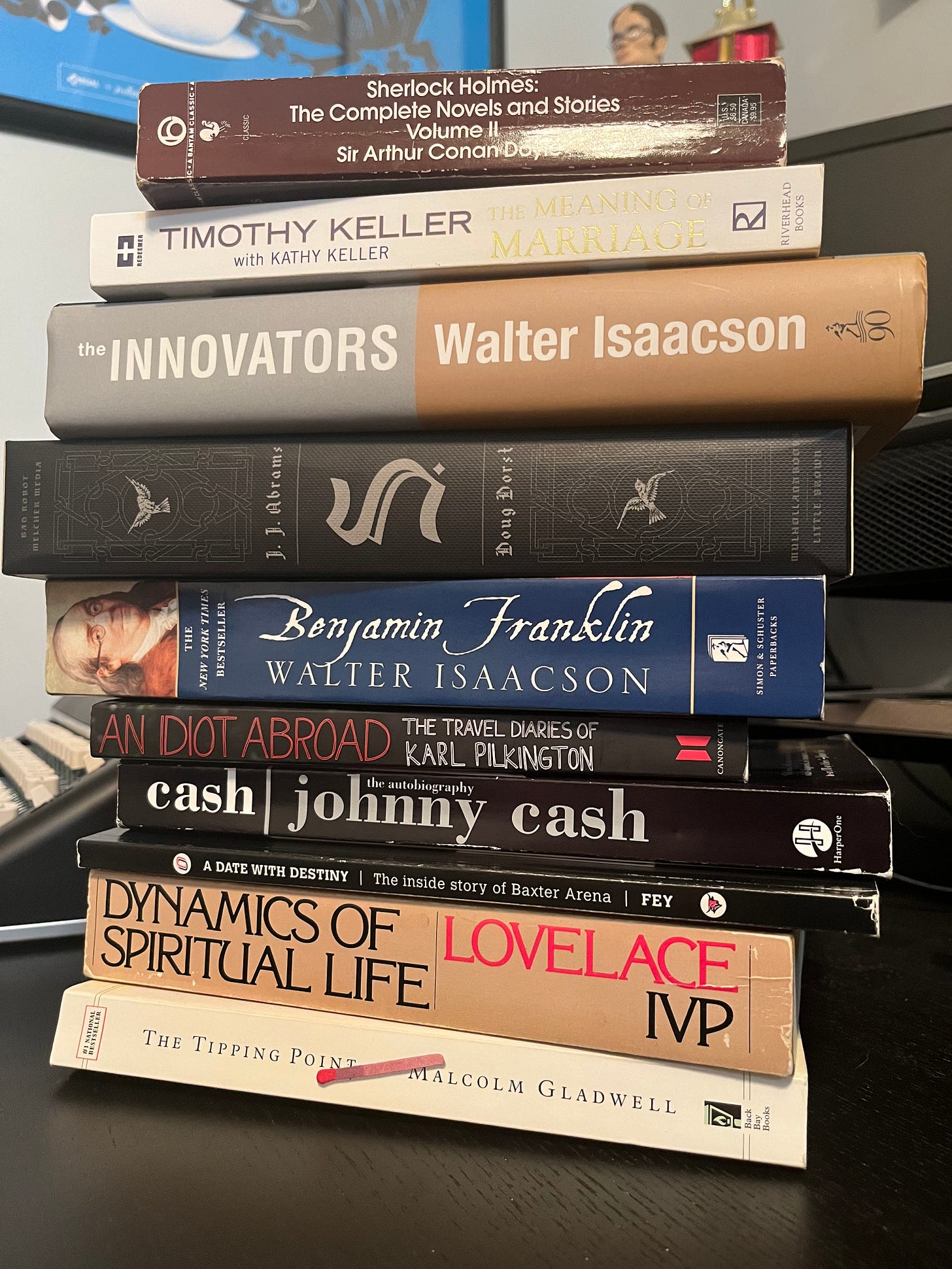
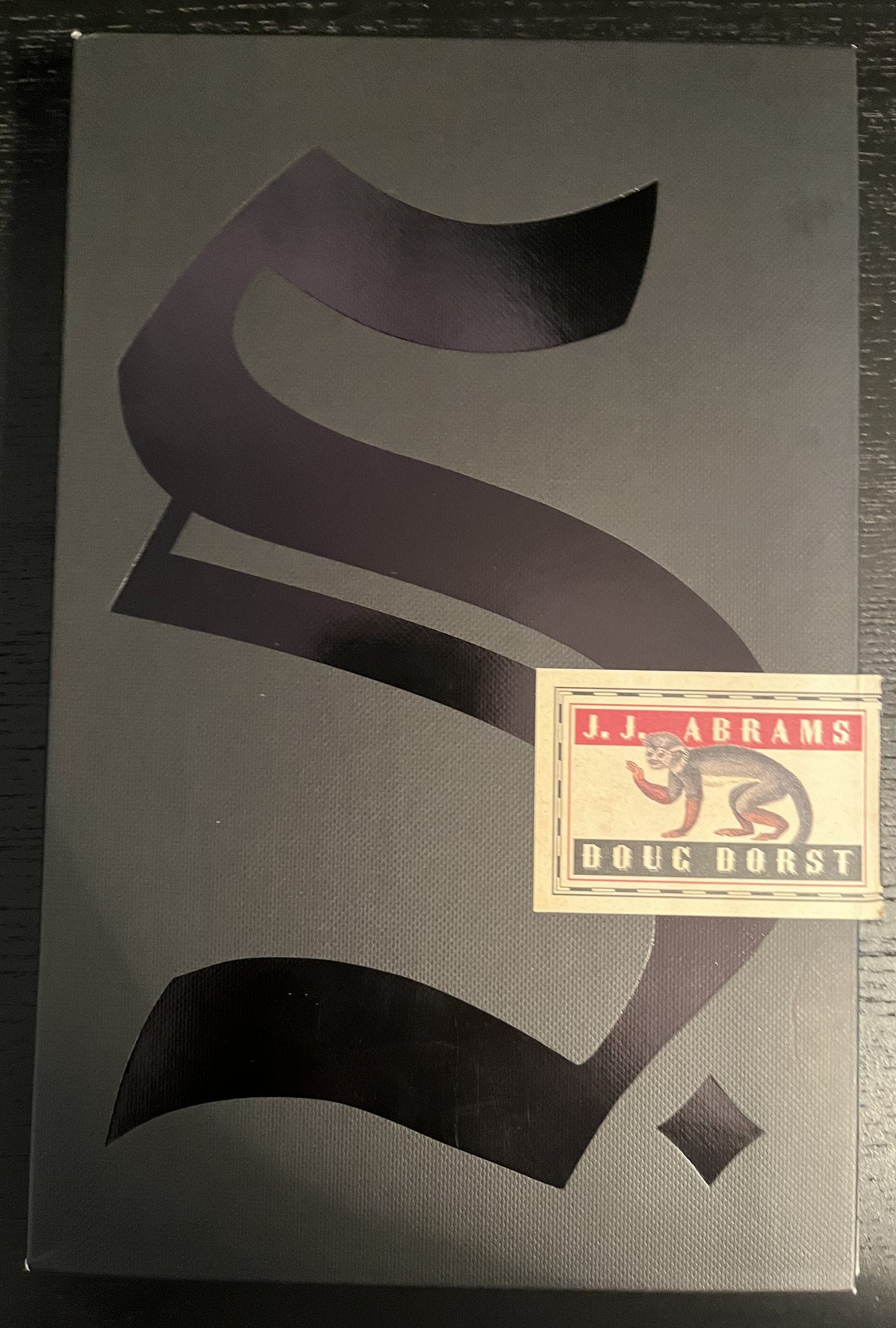
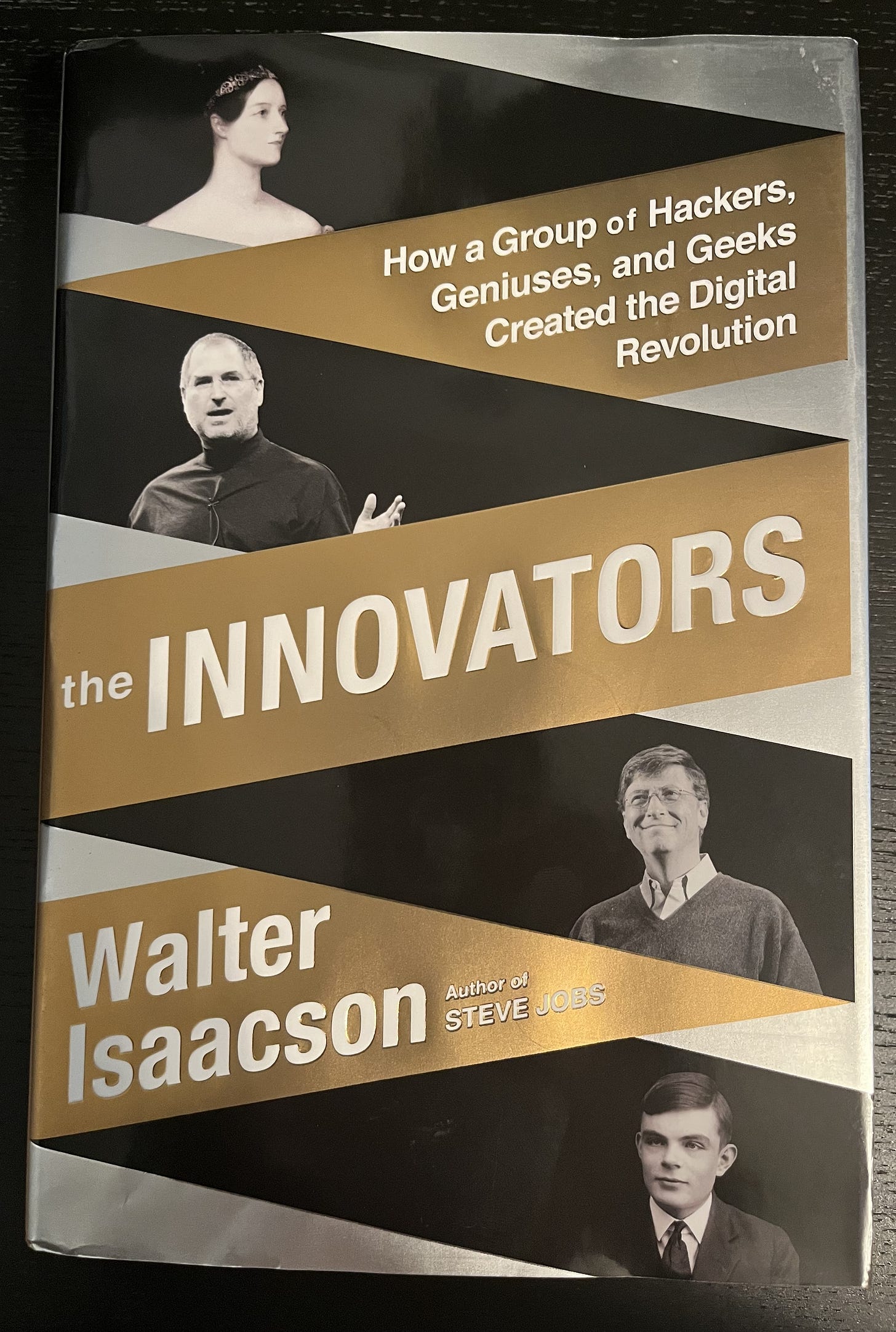
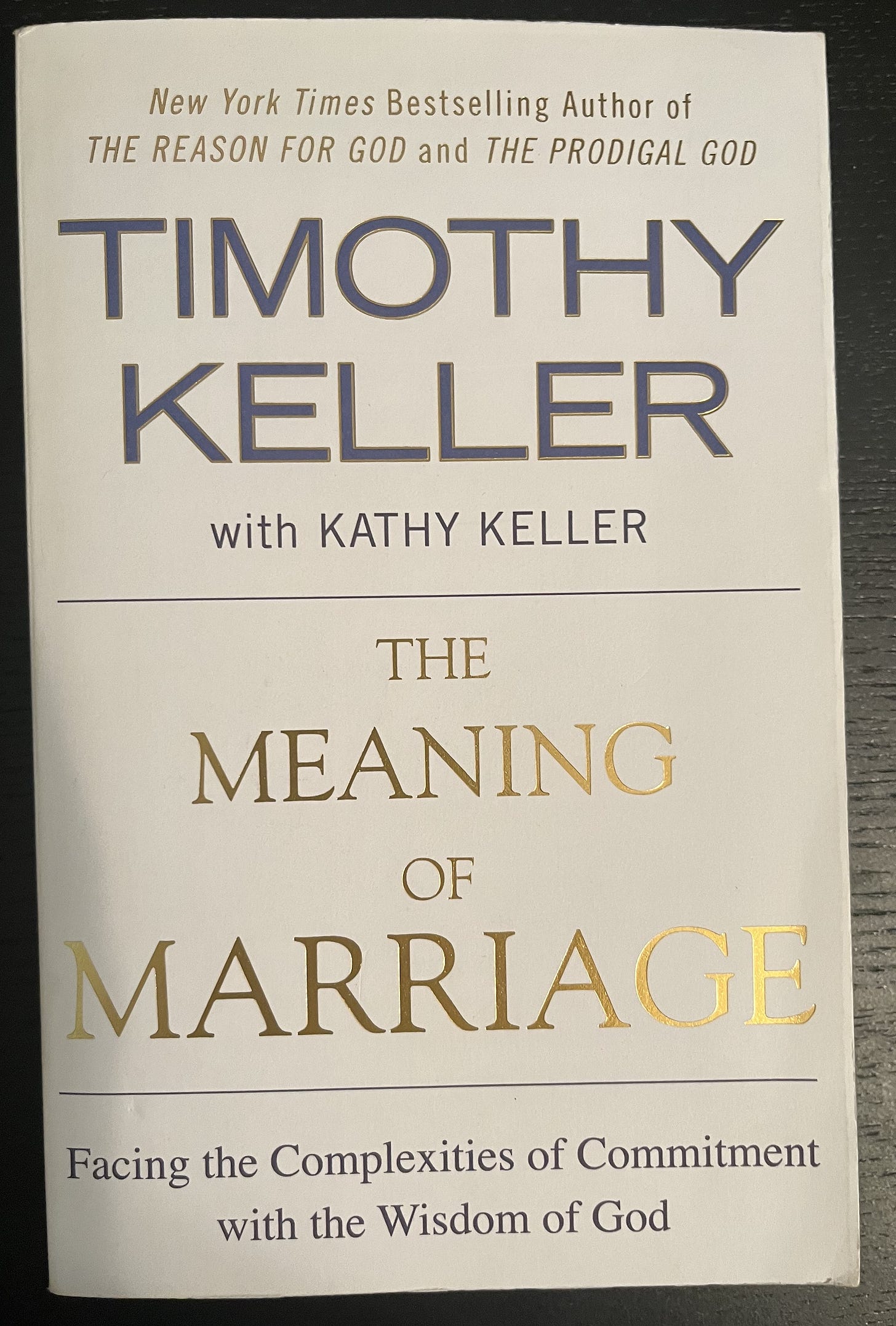
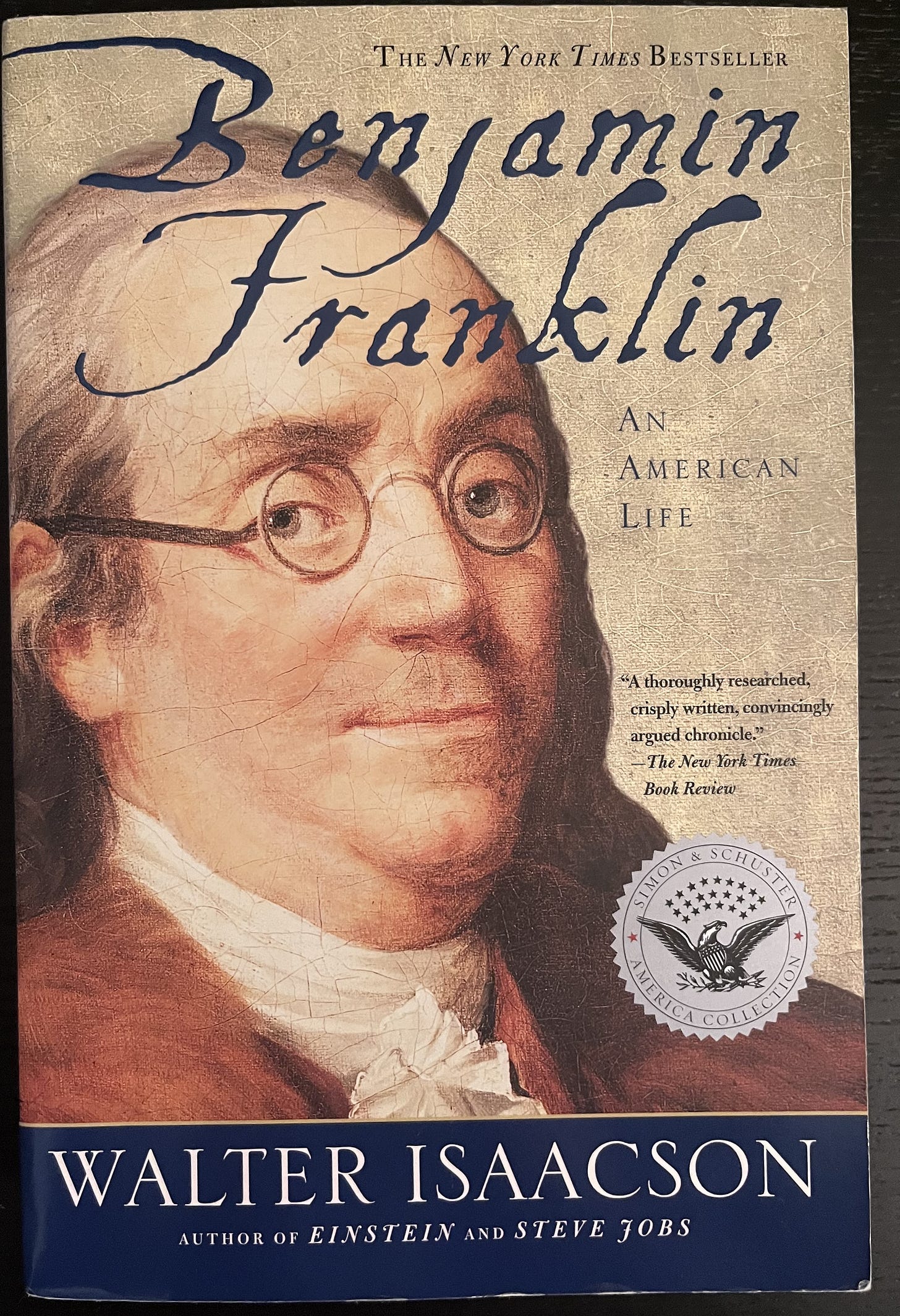
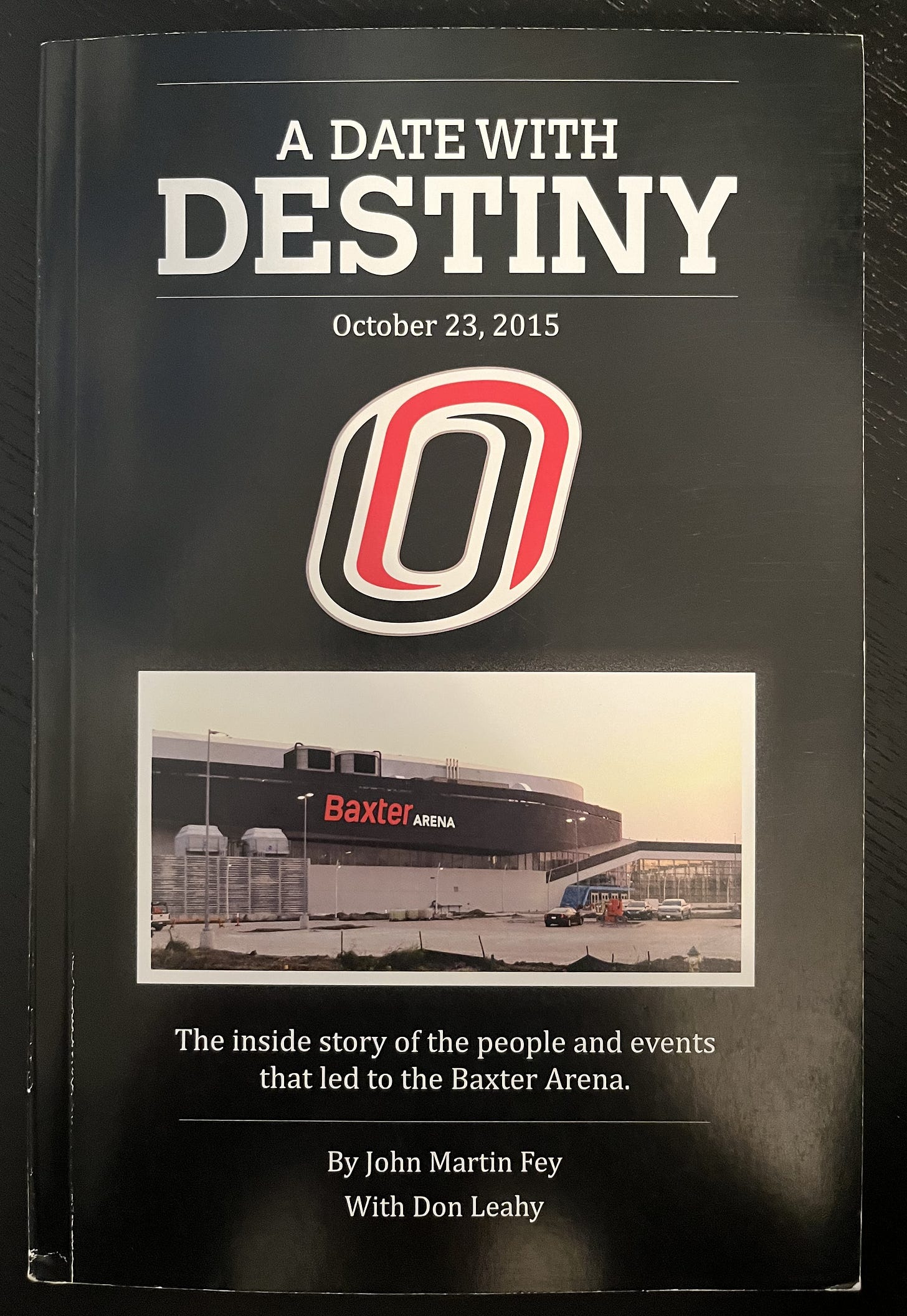
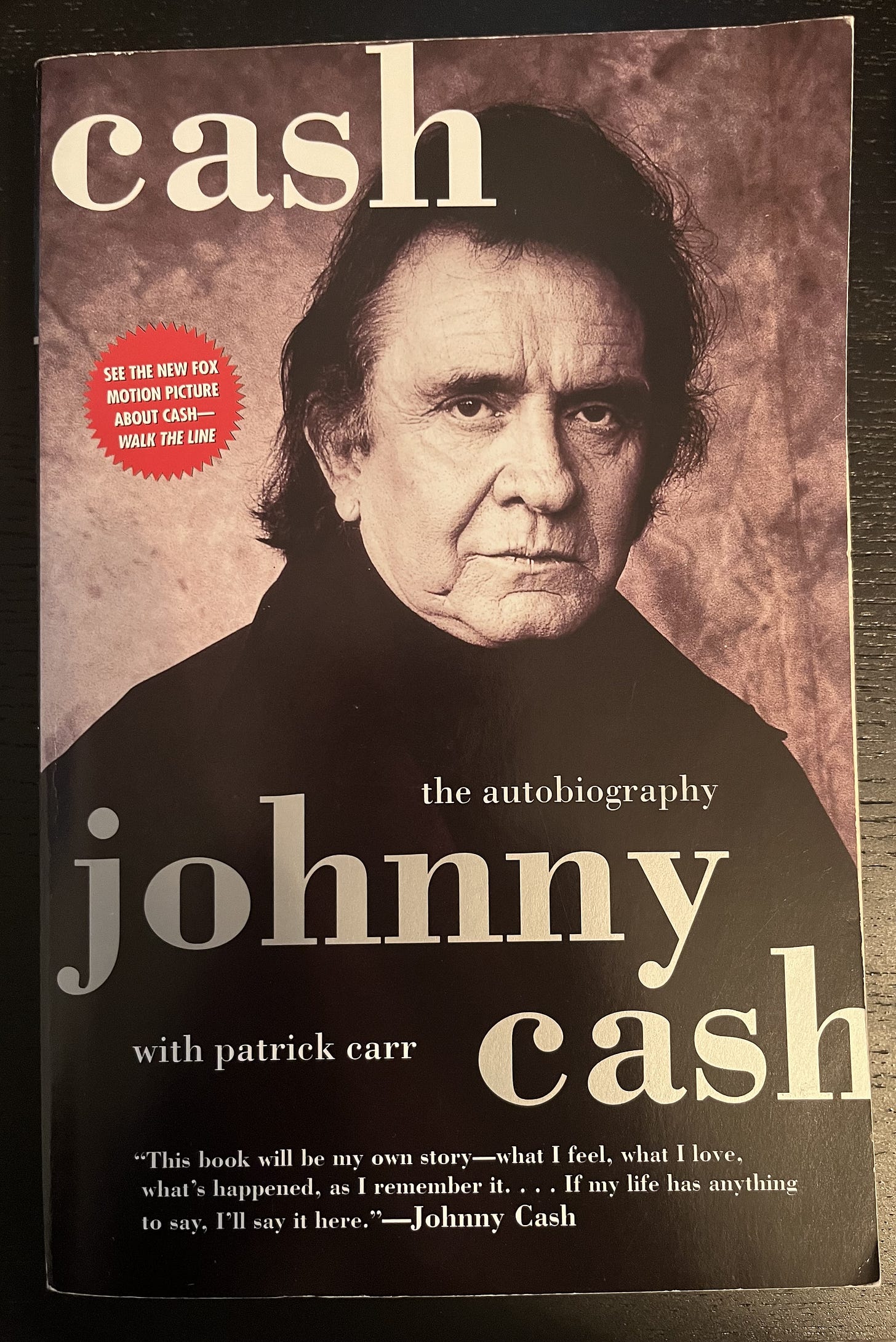
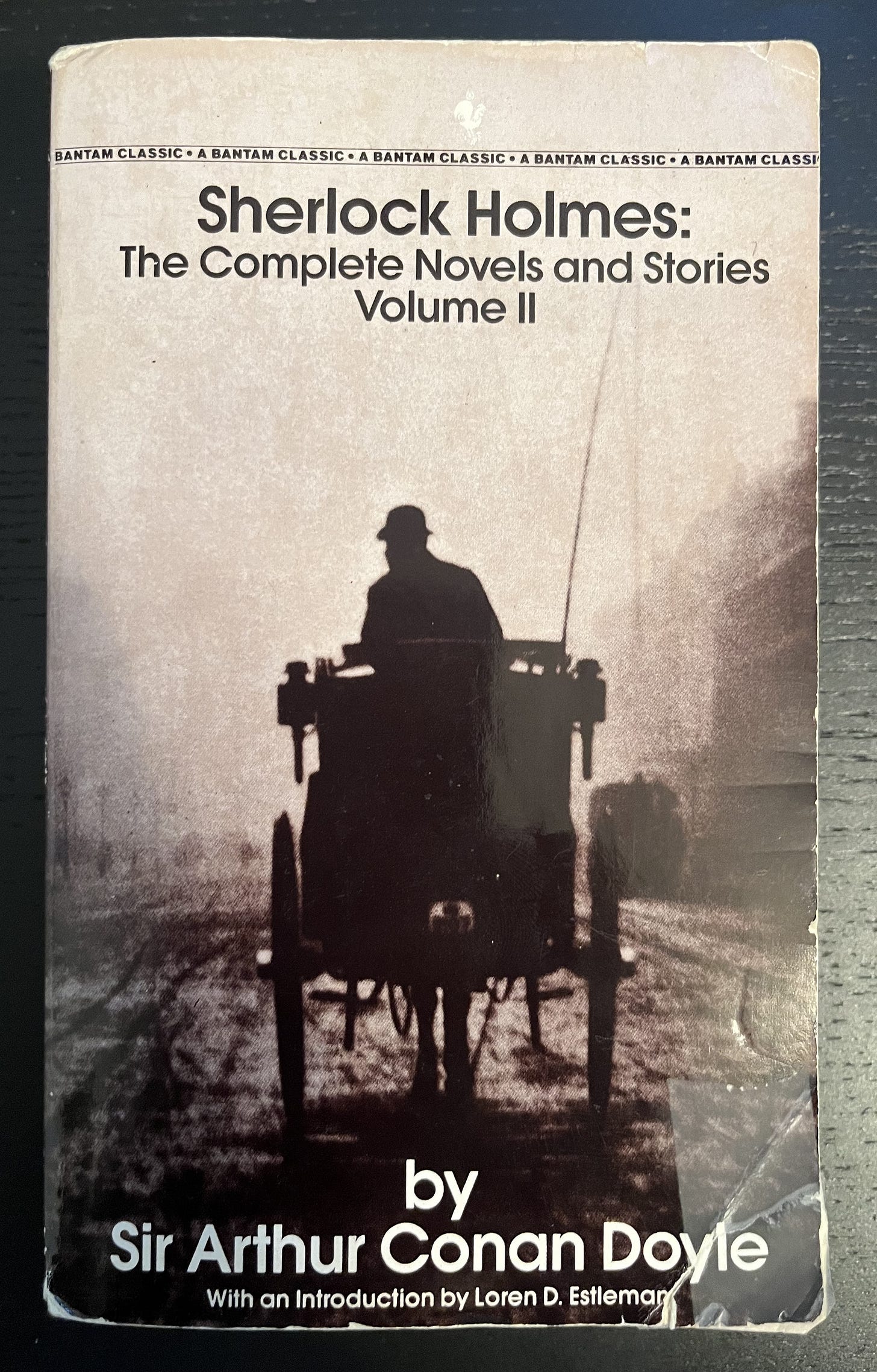
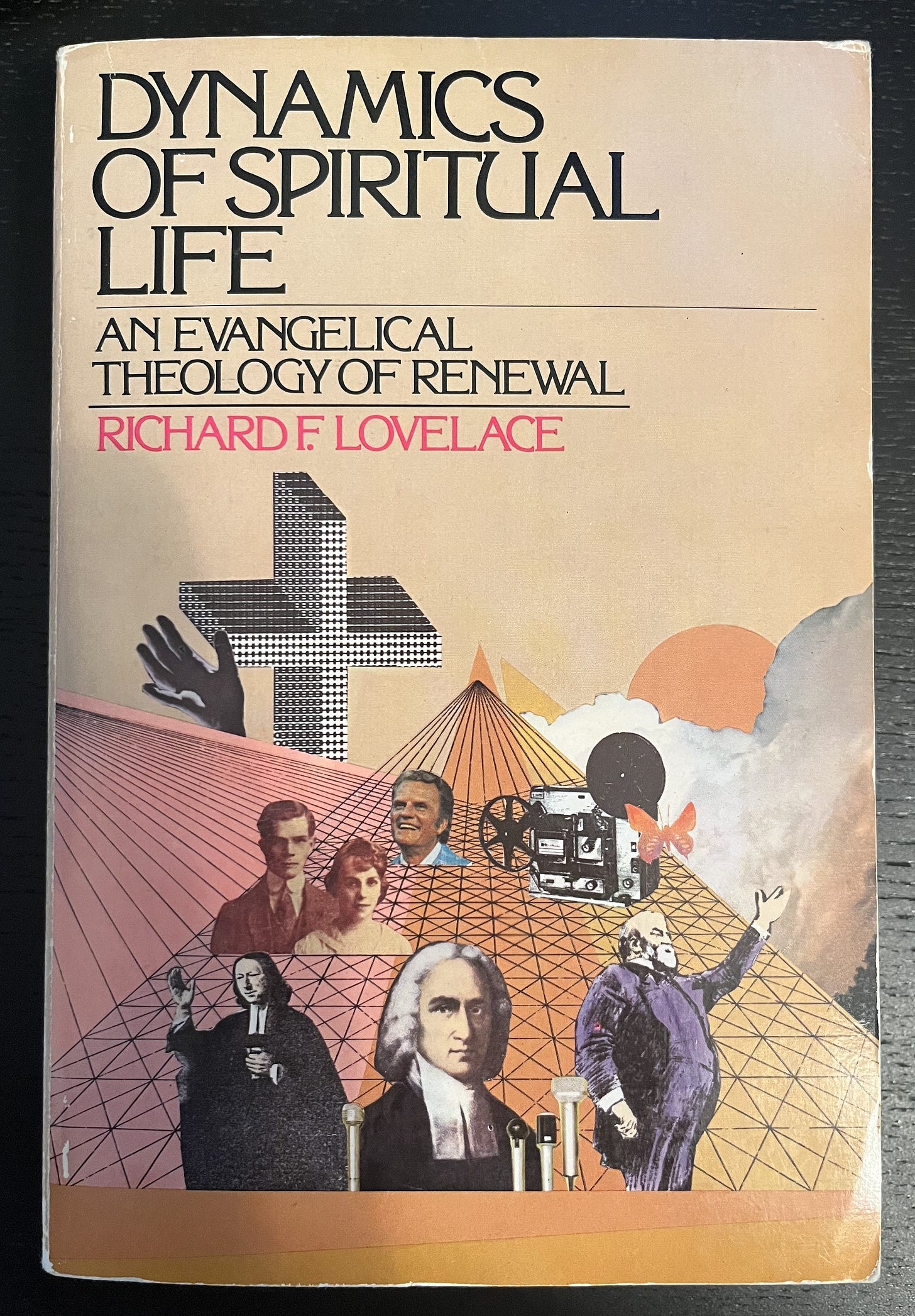
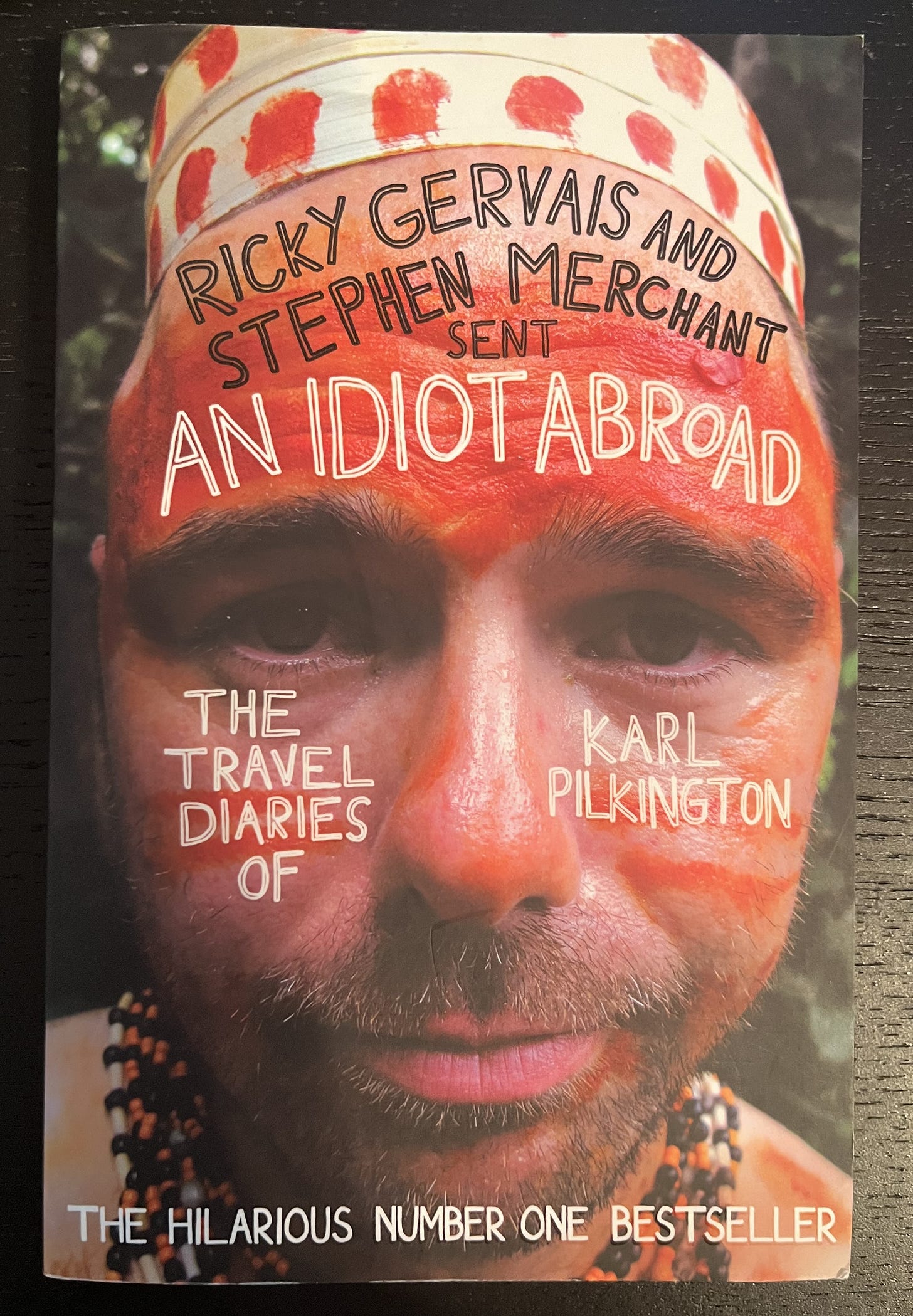
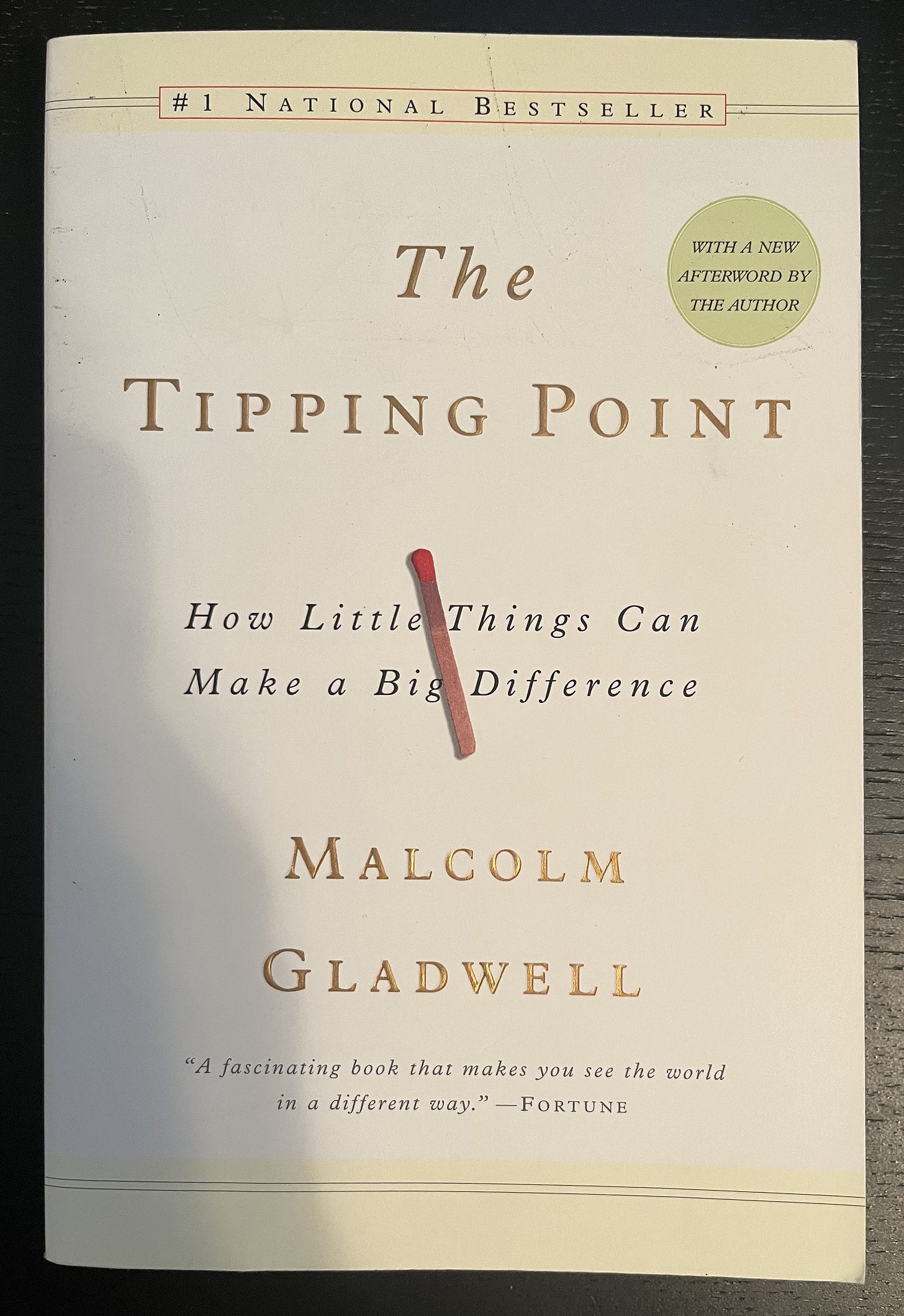
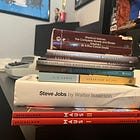
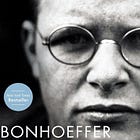
I forgot that Karl went to Machu Picchu! You can recreate that moment yourself in two weeks. :-)
I've been meaning to reread The Meaning of Marriage - Tim Keller definitely laid it all out there.
I'm adding S to my reading list. It sure made some great proposal material!